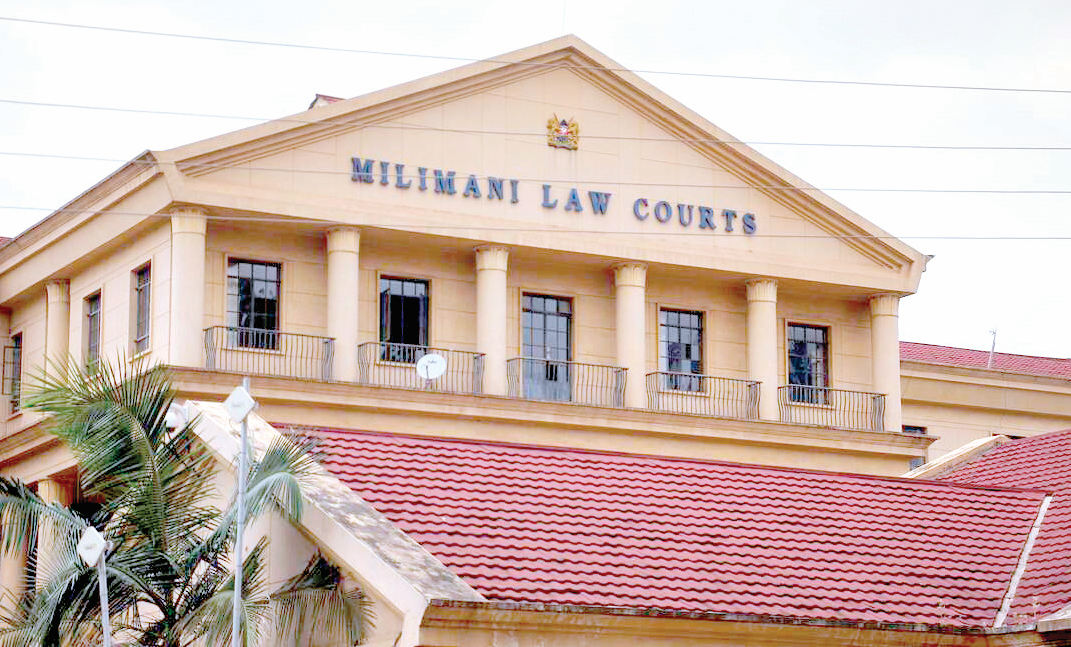Justice denied as over 520,000 cases pend in courts for years

The number of cases pending judgment in various courts across the country, some dating back three years or more, according to statistics from the Judiciary are more than 520,000 with the Magistrate Court and High Court registering the highest overall backlog.
In Kenya, the maximum a case is classified as backlogged if it remains unresolved is one year upon its filing in court.
Notably, the volume of cases increased by over 200,000 in between November 2022 and November 2023.
As the cases drag on for years, witnesses and suspects die, judges move to new stations or retire and lawyers move on.
Delayed hearing and determination of cases not only delays justice to the aggrieved parties but also means higher spending on legal costs.
Lawyers usually charge fees based on, among other things, the number of appearances made in the court on behalf of clients.
Another major reason for delays is the unwillingness of some witnesses to testify, difficulties in translation of witness testimonies into official court language, which is English, and some lawyers playing small games of seeking adjournments.
Last week, Chief Justice Martha Koome revealed that the cases backlog had reduced by 17 per cent compared to previous years.
In December 2023 the Judiciary announced that the Supreme Court and Kadhis’ Courts had the highest reduction of backlog at 86 per cent and 55 per cent respectively.
Public outcry
The majority of the backlog were in the Magistrate Court at 276,678 cases, followed by the High Court at 76,208 cases. The least number of pending cases were in the Supreme Court with 20 cases.
Of the over 500,000 case backlog, 86,854 cases have been in the Court system for over three years.
The Judiciary has been running an ambitious project to clear a backlog of cases from court amid public outcry for faster administration of justice.
A key target of the programme dubbed Sustaining Judiciary Transformation (SJT) is to finalise cases that have been in court for more than five years.
At the onset of SJT in January 2017, there were 170,186 cases in the Judiciary, which were over five years old.
The majority of these pending criminal cases in the Magistrate Court were general criminal matters at 65 per cent followed by traffic cases at 24 per cent.
Inquests were the least pending criminal cases at one per cent. General civil matters were the highest pending civil cases, accounting for 75 per cent of total pending civil matters.
Last week Koome, in a meeting with all the heads of courts in the country in Naivasha, warned judges against delaying cases.
To address the challenges that face the Judiciary in the administration of justice, including delay of determination of cases, the Heads of Superior Courts led by Koome resolved to enhance the use of technology in case management, to amend the Practice and Procedure Rules 2013, upholding the independence of the Judiciary and fight against corruption in the institution.
The Chief Justice urged the judges to enforce the “no adjournment” policy to guarantee efficiency and curb delays synonymous with courts.
“Litigants and stakeholders in the justice sector are urged to embrace the ‘no adjournment’ policy as adjournments will be granted only in the most exceptional circumstances,” Koome said.
All the heads representing the Supreme Court, the Court of Appeal, the High Court, the Employment and Labour Relations Court, and the Environment and Land Court stated that they will continue to make positive strides in reducing the backlog of cases through alternative justice systems, particularly the Court Annexed Mediation (CAM).
The system involves neutral third parties (mediators) who bring disputing parties together to resolve the issue in dispute.
Piloted in 2016, the system continues to gain traction among families and individuals and has also been acclaimed for having unlocked resources to the economy in terms of billions of shillings held up in the economy in adversarial litigation, especially in succession cases.
The heads of courts also agreed that Koome would enhance the capacity of the Constitutional and Human Rights Division and the Judicial Review Division of the High Court once new Judges are recruited.
“The Principal Judge of the High Court in consultation with the Judges of the High Court will continue to undertake Rapid Results Initiatives involving the distribution of time sensitive matters in the Constitutional and Human Rights and Commercial Divisions to all High Court Judges using the innovative ‘Mahakama Popote’ model for expeditious disposal of disputes,” She added.
She said that despite the judges being facilitated to determine their cases in a reasonable time, there were still delays.
Kenya’s Court of Appeal will also endeavour to fast-track the hearing and determination of appeals relating to time-sensitive matters.
The Head of court also recognised the great role played by the Small Claims court in transforming the landscape of determination of commercial disputes and numerous challenges they faced.
“We take note of emerging challenges facing the Small Claims court. Efforts are being pursued to tackle these challenges and streamline the operations of the court,” the judges stated.
The Court of Appeal will audit appeals and applications where the courts granted stay orders of proceedings to ensure the cases are fast-tracked.
Corruption
Meanwhile, the High Court will undertake a Rapid Results Initiative to prepare Records of Appeal to ensure criminal appeals at the Court of Appeal are accelerated.
Conversely, the Office of the Chief Registrar of the Judiciary (CRJ) will streamline the process of transfer of staff to cover any shortages.
“The Office of CRJ will streamline the process of transfer of staff with a view to ensuring that each court station is optimally staffed to support judicial processes including with adequate number of interpreters,” the judges resolved.
The heads of courts also agreed to fight against corruption, enhance accountability and seamless service delivery.
“The Judiciary abhors corruption in all its forms and is committed to promote and enforce the principle of zero-tolerance to corruption,” Koome said.
“The Judiciary and the Judicial Service Commission shall continue to pursue an evidence-based approach in proactively dealing with corruption.”
The judges also emphasised the need to uphold the independence of the Judiciary while harnessing intergovernmental collaboration.
“The Judiciary will collaborate and work with the other arms of Government in the spirit of interdependence and reciprocity. However, the other arms of Government must respect the independence of the Judiciary.
“There shall be more interaction between the Judiciary and other arms of Government to communicate the needs of the Judiciary without interfering with the independence of the Judiciary in the spirit of cooperative dialogue,” Koome stated.











